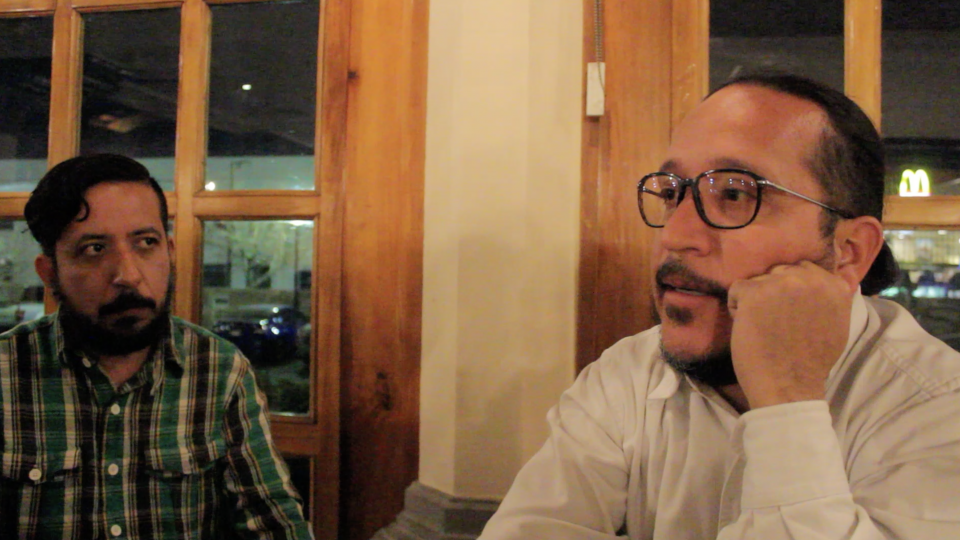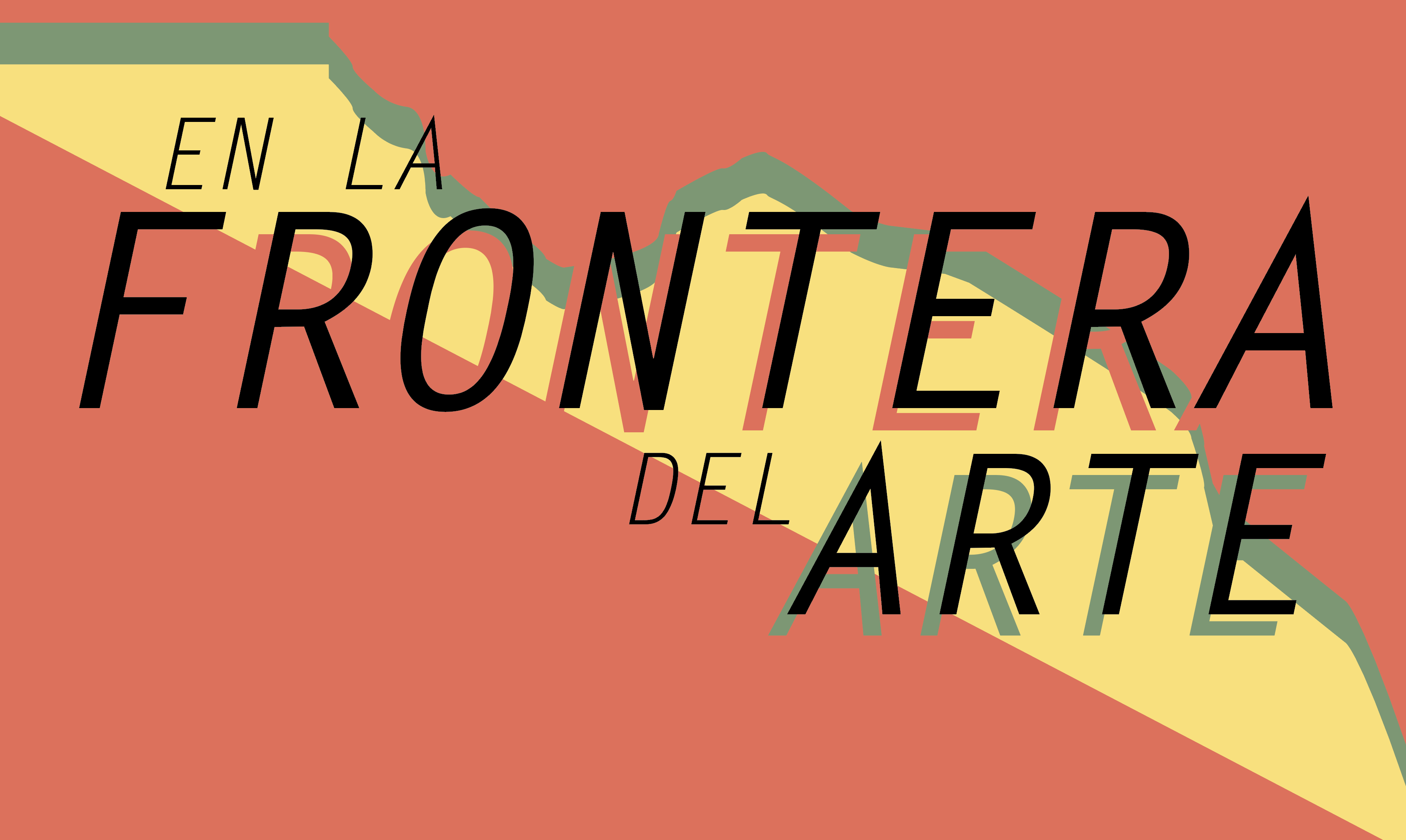
Rubén and Carlos Macías
Rubén and Carlos are brothers working towards revolution in Ciudad Juárez and beyond, their efforts linked to liberation struggles across the world. They helped find Colectivo José Revueltas a group of writers and musicians that has hosted lectures, discussions, and reading groups, and published independent literary materials for more than a decade. Learn more about the collective here. When we joined them for a benefit concert for Marichuy, the feminist indigenous candidate running for México’s presidency, they were reading their poetry, collecting signatures, chatting with supporters and fellow activists, and handing out these independent papers. Walking with them around town, it’s impossible not to run into their friends on nearly every block.
While collaboration is central to their work, each has defined their own voice in a unique way. Rubén’s most recent collections of poetry, algun muelle (some dock) and los perros de nadie (the dogs of nobody), dissect a militarized Juárez, drawing attention to narratives that are often forgotten or displaced in the mainstream. His prose is spare and striking, inviting innocence, love, and care, to enter into a landscape he knows so intimately. There’s a tragic mood in each poem contained within los perros de nadie, though the overall composition nourishes a profound hope, his lines rich and imaginative.
Carlos’ most recent collection Escribir con luz (to write with light) is a testament to the every day juarenses that construct this unique city. In the poem “frontera”, he speaks to their persistence, their sharing of life and of breath. In another piece, “la frontera de la memoría”, the border isn’t just a physical space, but an emotional and mental geography; It’s an inherently mobile concept that exists outside of any wall. In this work, he writes, “todo mi llanto estará escrito en los paredes de esta frontera,” meaning “all my crying will be written on the walls of this border.” It’s a truly profound line, and evident of his commitment to building a world without borders through direct political action, radical community building. and the use of language.
En sus propias palabras: “Rubén Macías nació en Ciudad Juárez, Chihuahua en 1982. Cursó la carrera de Letras Hispano-Mexicanas en la Universidad Autónoma de Ciudad Juárez como oyente. Es integrante del colectivo José Revueltas, Ciudad Juárez, y ha publicado en Anuario de poesía (FCE, 2006), Alforja (2007), Periódico de poesía (UNAM, 2011), Zeit Online (2011), y El puente con la migra: anecdotario de la vida fronteriza (2012). En 2009 apareció su plaquette La mujer que se aleja (Otra Editorial/Colectivó José Revueltas) con traducción al francés de Serena Ferrari
“Carlos Macías Esparza nace el 13 de marzo de 1978 en Ciudad Juárez, Chihuahua. Su formación literaria la ha desempeñado de manera autodidacta. Desde muy joven ingresa al taller de Édgar Rincón Luna en donde publica sus primeros poemas en la antología de poesía: malos hábitos, cinco escritores jóvenes. Asiste a la carrera de literatura de la UACJ como oyente, escribe en las revistas de poesía Pluma de ganso y Alforja. Aparece en la antología poética que edita Fernando Sabido Sánchez de forma electrónica. Publica en la revista nacional Proceso un poema y una entrevista. Su primera publicación en plaquette es titulado Sobre Ruinas. Ha estado en diversos encuentros de poetas locales y nacionales. Es adherente a la sexta e integrante activo del Colectivo José Revueltas.”
